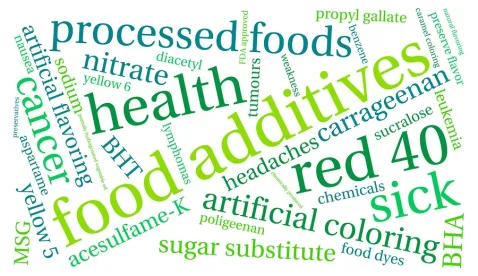Two recent contrasting decisions in class action false advertising cases alleging misleading uses of the term “natural” for food products underscore the difficulty in predicting the likelihood of achieving an early stage dismissal in these cases.
Late last year, Judge Richard Seeborg in the Northern District of California denied Williams-Sonoma’s motion to dismiss an alleged class action false involving food labels describing products as containing “Active Ingredients Derived from Natural Sources.” Kutza v. Williams-Sonoma, 2018 WL 5886611. Just a few weeks later, Judge Allyne Ross of the Eastern District of New York dismissed a putative class action alleging that the brand name “Florida’s Natural” for orange juice misleadingly suggests that the juice contains no herbicide or other chemicals. Axon v. Citrus World, 2018 WL6448646. Last month, the Axon court denied plaintiff’s motion to amend the complaint, causing plaintiff to appeal to the Second Circuit.
The facts of the cases do not readily explain why the Kutza and Axon decisions came out differently. In the former case, plaintiff claimed Williams-Sonoma breached express and implied warranties to him and to a nationwide class by deceptively advertising that its products are “natural” through product labels that state “Active Ingredients Derived from Natural Sources.” Plaintiff alleged that product ingredients, ranging from phenoxyethanol and dimethicone to citric acid and sodium chloride, are “hazardous” and/or synthetic, and that he would not have purchased the products had he known the nature of these ingredients.
In addition to the product labels, plaintiff also alleged that Williams-Sonoma’s website contains misleading statements that further imply the products are “natural.” One such statement is that “[t]here are no dangerous chemicals like ammonia or chlorine to worry about, and no lauramide DEA or parabens either – only natural oils, essences and cleansing elements.”
Williams-Sonoma argued that none of these statements would mislead reasonable consumers. Indeed, as the court noted, the principal statement at issue – “Active Ingredients Derived From Natural Sources” – concededly is literally true. Nonetheless, Judge Seeborg allowed the false advertising claims to proceed, notwithstanding his recognition of the retailer’s “strong arguments that it can present to the fact-finder, or perhaps on summary judgment.” The opinion did not clearly explain, however, how the label’s literally true, qualified statement might mislead a reasonable consumer that every ingredient in the product was natural.
By contrast, in Axon, the court granted the defendant’s motion to dismiss on the ground that the complaint failed plausibly to explain how a reasonable consumer would be misled by the “Florida’s Natural” brand name into believing that the fruit in the product was not treated with any herbicide or other chemicals. The court relied on In re General Mills, 2017 WL 2983877 (D. Minn. July 12, 2017) – another lawsuit alleging false advertising based on trace amounts of glyphosate in “natural” products – which held that “[i]t would be nearly impossible to produce a processed food with no trace of any synthetic molecule.” As a result, the court found it “implausible that a reasonable consumer would believe that a product labeled ‘Florida’s Natural’ could not contain a trace amount of glyphosate.” It distinguished the instant case – in which a synthetic compound remained in the products due to its use in the growing process – from those in which products labeled “natural” contained synthetic ingredients that had been specifically added. It also distinguished use of the term “natural” in a brand name from instances in which it was applied as a descriptor of the product.
Together, Kutza and Axon are noteworthy for highlighting the degree to which the dismissal of suits challenging “natural” claims on product labels (and for that matter, many other advertising statements challenged in class action false advertising cases) depends on a district court’s inclination (or lack thereof) to “kick the can down the road” to a later phase of the case. This results in significant uncertainty for defense counsel and their clients as to their ability to obtain early stage dismissal even of obviously weak and conclusory allegations of false advertising. The dichotomy in the case law will be one to watch in the future.





 />i
/>i
